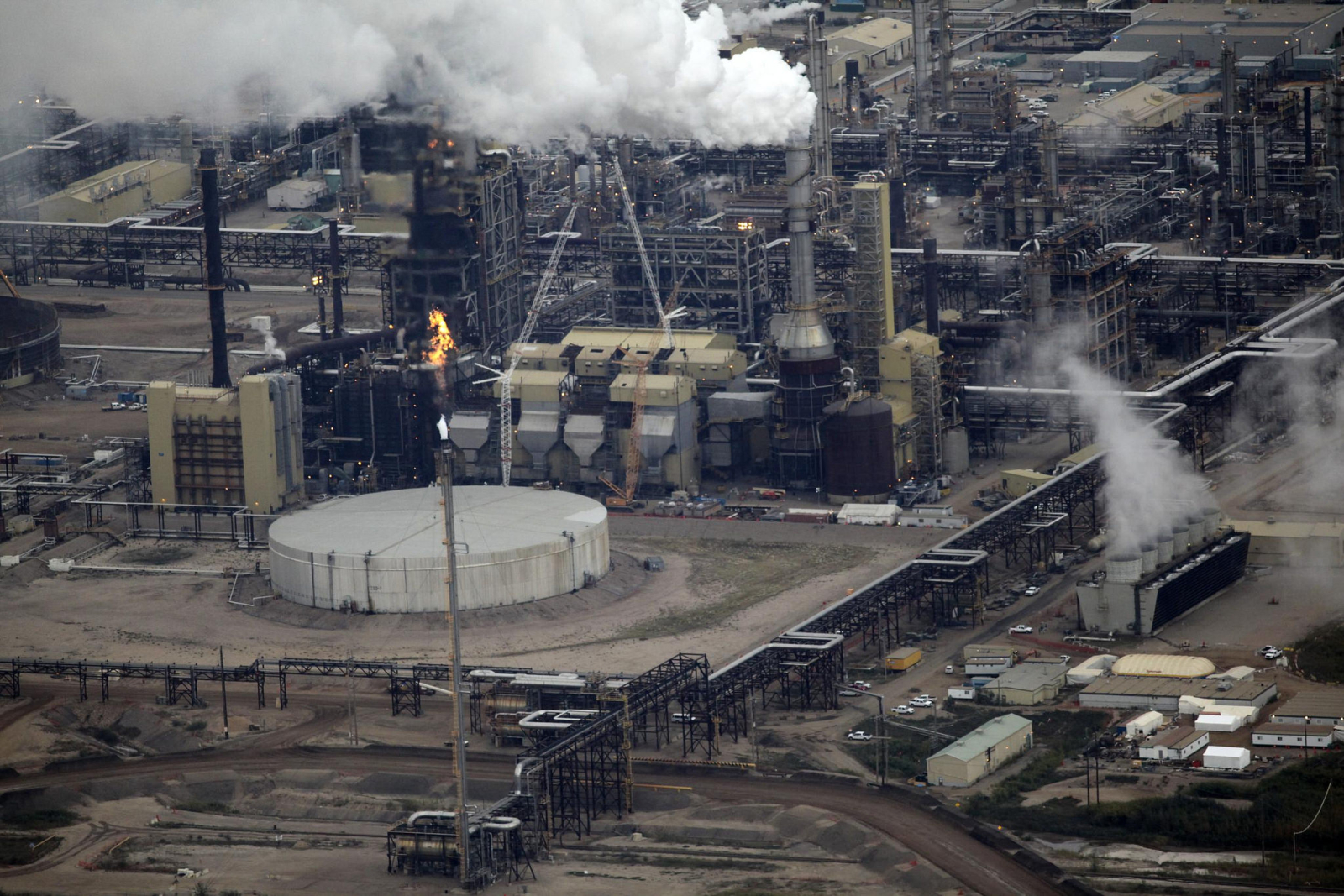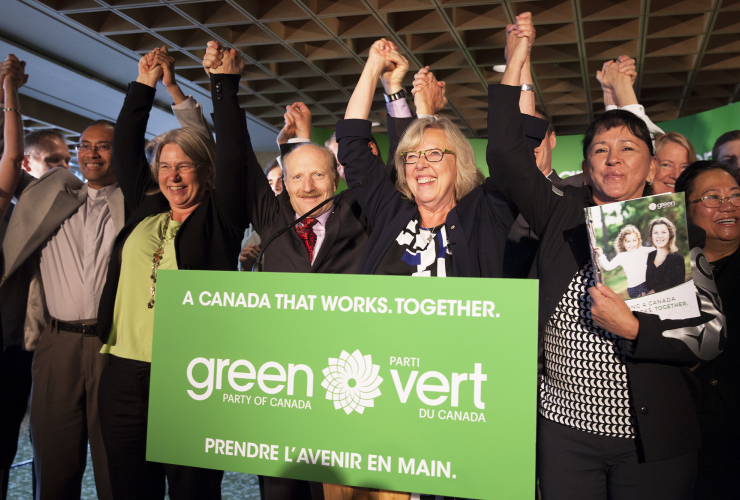To some, it's an astute enviro-energy promise being made by the NDP, Liberals and Greens: axe the taxpayer subsidies that get pumped to Canada’s oil and gas sector, and voilà — one billion dollars in revenues are freed up for clean energy and a pro-climate policy.
Trouble is, Conservative leader Stephen Harper disputes that the subsidies still exist.
"The government has in fact eliminated subsidies to the oil sands and to the oil sector,” said Harper in the Maclean's TV debate last month.
And this week, the Canadian Association of Petroleum Producers (CAPP) said much the same.
"Canada’s oil and gas industry is not subsidized," said CAPP media relations manager Cheslie Klassen on Wednesday. "Tax deduction and deferral programs are not subsidies."
The association says the industry doesn’t get direct funding from government, but do get some tax exemptions "at rates that compare with other Canadian industries."
The remarks came after the National Observer published a news story, “Greens pledge to cut oil sands subsidies” in connection with the Green's platform launch this week in Vancouver.
Opposition parties see $1 billion in fossil fuel subsidies
But Harper's and CAPP's positions about the non-existence of the subsidies are at stark odds with what opposition parties' say. The NDP’s Tom Mulcair told the Economic Club of Canada in 2013: "A New Democratic government will redirect a billion dollars a year in fossil fuel subsidies, and re-invest that money in clean energy.”
Likewise, Justin Trudeau’s Liberals are pledging to slash tax breaks that help oil and gas exploration.
And Green leader Elizabeth May said this week the oil sector took in $1.3 billion in federal supports —a position backed up by a Pembina Institute study.
The question is: does the petroleum sector get federal subsides exist or not? The answer would dictate whether the next federal government could cut more than a billion dollars per year to pay for its promises.
A University of Calgary School of Public Policy energy expert says:
“To say that the oil and gas industry in Canada is NOT subsidized is simply not true,” wrote Professor Michal Moore [emphasis his own] in reaction to CAPP's claim.
“There are... lots of areas such as capital expenditure deductions, exploration, and startup costs that have tax relief or deferral associated with them."
Is an oil company tax break a subsidy?
That's a position backed up by the International Institute of Sustainable Development, headquartered in Winnipeg. Senior energy researcher Philip Gass, who was reached Friday in Geneva, says everything depends on how you define "subsidy."
If you use the World Trade Organization (WTO) definition, which includes tax breaks, he estimates there's likely one billion dollars annually in federal supports that flow to the oil and gas sector in Canada.
“There are still substantial [fossil fuel] subsidies remaining," he said.
That's even after recent Conservative government cuts to fossil fuel subsidies, such as the Atlantic Investment Tax Credit, he added.
The Liberal party appears to agree. Its media representative also wrote Friday:
"Once we eliminate the Canadian Development Expenses tax deduction and the Canadian Exploration Expenses tax deduction except in cases of unsuccessful exploration, we will have fulfilled Canada’s G-20 commitment to phase out inefficient subsidies for the fossil fuel industry.”
And Greens says their new fully costed platform can save $1.161 billion annually from various “capital cost allowance” credits.
And for the truly geeky policy wonks out there, the party says the savings come from: the Canadian Development Expense ($478 million), Canadian Exploration Expense ($233 million), Accelerated Capital Cost Allowance ($300 million), Investment Tax Credit ($100 million), and Liquefied Natural Gas capital cost allowance ($50 million).
In response to all this, CAPP sent a recent blog article, that begins:
"Critics often claim incorrectly the oil and gas industry is subsidized and they belittle or ignore the jobs and other benefits created by the industry. They also tend to gloss over the fact the world will need all forms of energy – including oil and gas – to meet global energy demand for decades."





Comments